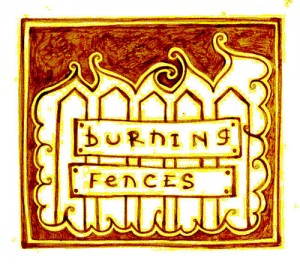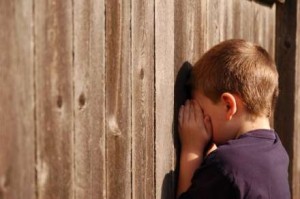
In a large community respectable and devout brothers should be chosen and designated deans.
Why Deaneries?
The term ‘dean’ comes from the Latin ‘decanus’ which meant ‘leader of ten’. It was a Roman military term which was adopted by Benedict and other monastic orders as role within a community. Deans were appointed to assist the Abbot in the oversight of monks. In large communities with a number of members it would be a challenging, if not impossible, task for a single Abbot to know each of the members to the degree needed to advise, direct and discipline each one in spiritual formation. It is pragmatism that births this role but I am aware of the importance, particularly after the week I have had.
It is not right to go into the details of what happened and what was said but by the end of last week, after several conversations and encounters I was bruised. I had faced several meetings in which I felt singled out and accused based on assumptions and mis-interpretations of who I am and what I want. My actions and words were taken and misread. I was faced with words like ‘aggressive’, ‘threatening’ and ‘disruptive’. These words bite and in repeated experiences through the week I felt like people who I thought knew me were intervening to save me from ‘causing any more damage’. I needed to be stopped.
This was difficult not least because of the shock and surprise. There was no indication in any of these encounters that I was doing anything wrong. After the second or third meeting one must (if they hadn’t already) begin to ask themselves where these impressions are coming from. I began asking that question after the first one so keen am I to learn and grow.
By the end of the week and after lots of reflection, pray and discernment (both alone and with others) I found myself realising that I need to be known. We all need to be known. What I mean by that is not just people who know what we want them to know, like the identities we build on social media, but know us beyond that, know us deeper than we sometimes know ourselves. In this kind of relationship you are held with great care and are watched over by those who know what you’re capable of; good and bad. This knowledge is the kind that God has of us and, as the Psalmist writes,
Such knowledge is too wonderful for me; it is so high that I cannot attain it. (Psalm 139:6)
This is where the importance of a monastic-like community comes into the picture for me. I have found, after all that happened last week, a stronger and deeper call to live in an intentional committed community that can hold and support me as God develops and forms me. In these places of vulnerability I find that I am more useful to God in serving others because I know his protection and care through other people.
I have realised afresh this sense of isolation in ordained ministry and I don’t think it’s healthy. In the parish system with the model which was has been throughout the 20th century and continues today the minister is expected to be both part of and yet distant from a community whom he/she serves. There is a necessity, in order to survive, to have a public/private divide.
Don’t be friends with your parishioners!
I have never liked this aspect of public ministry and I have seen and experienced the pain and rupturing that this causes people. It makes me sick in the stomach to stand up the front of a gathering and to be forced, out of fear, to be smiles. It is a lie and it is not what people want or need.
The church does itself a devastating disservice when the ministers and pastors are taught to keep their doubts, their formations, their pain and struggles hidden out of fear that people may lose respect for them.
If those in a community really knew who I was then they’d realise I’m no different from them…
I’d love to quote Henri Nouwen from his famous book ‘The Wounded Healer’ but there are so many that I cannot choose. That book opens up the portrayal of a future leader who is able to articulate his own roundedness to invite people to face up and deal with the inner confusion of the human condition. Leaders are not there to promote ideas but to encourage people to share lives. How can this be done when the leaders/ministers feel isolated and lonely and unable to speak out their experience of this.
This is where I see the potential of deaneries.
Deaneries in the Church of England have varied success and failures but it is a common problem that they have very little purpose. Below the Deanery Synod is the PCC a singular local meeting of members of one congregation. Above the Deanery Synod is the Diocesan Synod a collection of representatives from the multiple congregations to meet and discuss things with a bishop and his staff. The Deanery Synod is an added level which has little purpose except to vet items from a singular congregation to the larger multiple meeting of the whole Diocese.
The monastic view of ‘deaneries’ is, in my reading of it, based on the need for monks to be known. Deaneries play a part in ministers/leaders (lay and ordained) being known. Deans, therefore, take on the role of knowing them, praying for them, advising them and disciplining them. When that function is taken away and they no longer are encouraged by the ‘abbot’ (bishop) then what are they for?
Reflection
I see great potential in deaneries but, as they are, they are purposeless. To see the church grow and find a deeper faith and spirituality we need to seriously reflect and shift the structures so that they are used for the furtherance of that goal. Whilst we keep this historic structure as it is without a clearly defined role then the more we will fumble about in the dark. I am grateful for the deep questions and exploration of my Rural Dean and Deanery Synod Standing Committee but they have a thankless task whilst people remain cynical, tired and disappointed by experience and would rather just close it down than breathe new life into it.
I offer this reflection not with a definite vision but with the hope of re-discovering values. What if there was a place for ministers and leaders, representatives who take on responsibility of leading congregations to be known, to speak honestly and to be supported. What if the Rural Deans were released and encouraged to have the capability of ‘sharing the abbot’s responsibilities’ rather than just plugging the gaps. What if power and authority was given to deaneries to be a place where the leaders (lay and ordained) of a particular collection of churches come together to pray and to be known. What if we begin to see ministry based not on individual autonomous parishes but in deaneries? What if ordained ministers were placed to work in a large team, under the direction of a dean, to serve the people of those parishes?
Lord of the Church, we are struggling to adapt to the changing landscape and to see where you are leading us. We thank you that you have already faced these issues countless times before and it is from the monastic tradition in the past that you have re-ignited faith in this land. I pray for Rural and Area Deans and pray that they may be encouraged and released to lead your Church. Grant unto us all wisdom and discernment as to how to move forward. I pray also for all who are burnt out and tired, isolated and lonely in leadership. I stand with them and weep. Surround them with people who know them who can strengthen them by your Spirit.
Come, Lord Jesus.
 I have had the privilege of being welcomed into a community over the last year which has had an ongoing and deeply transformative impact on me and my vocation as an ordained priest. The community are mainly in their twenties and would, at a cursory glance, be classified as ‘arty’ intellectual types, although this is not entirely true; not that they are not either of those things but that which unites this group isn’t those two general categories. It is only in the last month or so that I have begun to grasp the ‘charism’, the ‘je ne sais qua’, of Burning Fences.
I have had the privilege of being welcomed into a community over the last year which has had an ongoing and deeply transformative impact on me and my vocation as an ordained priest. The community are mainly in their twenties and would, at a cursory glance, be classified as ‘arty’ intellectual types, although this is not entirely true; not that they are not either of those things but that which unites this group isn’t those two general categories. It is only in the last month or so that I have begun to grasp the ‘charism’, the ‘je ne sais qua’, of Burning Fences. Before I stumbled through the doors one cold December night, this community had been meeting, singing and telling stories for a year or more. They had produced a CD of songs which they had developed entitled ‘Of Anthem and Ashes’. The images that were resonating with them then and remain reverberating through our times together are phoenix like resurrections; songs sung in the rubble, new plants breaking through concrete. These images have always resonated with me and it’s why I know I am a ‘fence burner’.
Before I stumbled through the doors one cold December night, this community had been meeting, singing and telling stories for a year or more. They had produced a CD of songs which they had developed entitled ‘Of Anthem and Ashes’. The images that were resonating with them then and remain reverberating through our times together are phoenix like resurrections; songs sung in the rubble, new plants breaking through concrete. These images have always resonated with me and it’s why I know I am a ‘fence burner’. The times when Church is most frustrating, for me, is in the ‘necessary organization’. What irks me is the lack of convincing Biblical precedent. The Temple system failed and yet here we are in the 21st century rebuilding it. I get it, organic is messy and uncontrollable, unpredictable but it’s how the world functions. We human beings are devastating when we control and tinker with the organic creation. We’ve tried to organize the world and what we discover is we’re trapped in boxes which do not fit nor encourage us to flourish in the ways in which we should.
The times when Church is most frustrating, for me, is in the ‘necessary organization’. What irks me is the lack of convincing Biblical precedent. The Temple system failed and yet here we are in the 21st century rebuilding it. I get it, organic is messy and uncontrollable, unpredictable but it’s how the world functions. We human beings are devastating when we control and tinker with the organic creation. We’ve tried to organize the world and what we discover is we’re trapped in boxes which do not fit nor encourage us to flourish in the ways in which we should.

 24. What is an encounter with the ‘hidden’ God like?
24. What is an encounter with the ‘hidden’ God like?